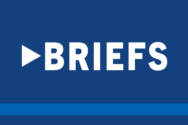
Home » Q&A with Kimberly L. Harper
Q&A with Kimberly L. Harper
February 13, 2019
Columbia Basin College’s 2019 Martin Luther King Jr. Spirit Award winner
Company/business/agency: U.S.
Department of Energy’s Office of Science – Pacific Northwest Site
Office/Pacific Northwest National Laboratory (DOE-SC/PNNL)
Tell us about your team: PNSO is a small staff of 30-plus people. I
work with a team of five scientists and engineers.

Brief background about your
department: DOE-SC is the lead federal agency supporting
fundamental scientific research for energy and is the nation’s largest
supporter of basic research in the physical sciences. The SC portfolio has two
principal thrusts: direct support of scientific research and direct support of
the development, construction and operation of unique, open-access scientific
user facilities. PNSO is responsible for oversight of the PNNL M&O
contract, which is currently managed and operated by Battelle. My everyday job
entails reviewing research proposals for mission relevance and risk mitigation.
Another function of my job is to partner with research organizations to better
understand the laboratory’s strategic direction and the necessary capabilities
to accomplish research outcomes.
How did you land your current
role? Six years into my DOE career, where our team oversaw the deactivation of
some of Hanford’s old nuclear processing laboratories and facilities – I really
wanted to gain a new set of work experiences. I asked for an opportunity to detail
with the group that manages oversight of PNNL’s work. The rest is history! I
fell in love with the work environment and the experience of getting to see
real progress on huge, complex and hard-to-answer scientific questions.
How long have you been in it? I’ve been with
DOE for 24 years; and in this specific site office for 18 years.
What does “diversity” mean to
you? Diversity is the intentional cohesion of differences. I pine for a day
where humans master the art of utilizing the strength of our differences for
common purposes and where every person appreciates and respects their own as
well as others’ place in the world.
Why should the
Tri-Cities care about workplace diversity? Workplace
diversity, when effectively implemented, produces “Grade A” work environments,
staff and products – which usually translates to a “Grade A” bottom line. If
you think about it in terms of problem solving – each person’s upbringing, life
experiences and failures shape the way she/he approaches a problem set. If,
instead of rejecting people’s different approaches to problem-solving, we took
time to absorb and learn from them – we’d realize the strength of having
multiple perspectives.
What is one characteristic that
you believe every leader should possess? The desire to help people
expand to their fullest potential, even if that means pointing them to
opportunities outside the span of your control.
“Great leaders don’t create followers. Great leaders create more
leaders.” – Tim Peters
What is the biggest challenge facing
leaders today? The ever-changing work force – which is characterized
by multi-generational attitudes and approaches to problem-solving requires
leaders to become bi- and sometimes trilingual (in terms of communication and
problem-solving styles). I’m appreciative of these differences every time I
mentor middle and high schoolers through interactive problem-solving exercises.
The young mind, uninhibited by the established way of doing things and free
from the fear of what can go wrong, is a very powerful motivator!
What advice would you give
someone going into a leadership position? Never lose your
willingness to listen to your people, early and often. Good, bad or indifferent
– use their willingness to share as a personal thermometer to gauge the
temperature in your work environment. And when you’ve received their input,
communicate your genuine appreciation, then use it to make informed decisions.
Lastly, never lose your willingness to continue learning. “The smartest person in the world doesn’t
know everything.” – My husband’s grandmother. There’s nothing like the
leadership of someone who knows where they’re going and can effectively utilize
their team’s input. It gives everyone ownership and rallies the team to come on
the journey. One of the best leadership quotes I’ve ever read comes from Gen.
Colin Powell: “When we are debating an issue, loyalty means giving me your
honest opinion, whether you think I’ll like it or not. Disagreement, at this
state, stimulates me. But once a decision is made, the debate ends. From that
point on, loyalty means executing the decision as if it were your own.”
Who are your role models or
mentors and why? My role models and mentors are numerous because I try
to learn from everyone that I have a relationship with. However, I consider my
parents to be my greatest influencers because they know me best and always give
it to me straight. And no matter what, I can always count on love being at the
foundation of whatever they’re conveying.
How do you keep your team
members motivated? We motivate one another through mutual respect for
one another’s abilities, candid dialogue, willingness to promote one another’s
ideas, refocus when necessary, and – most importantly – we can admit when we
get it wrong. We start with the premise that no one person has all of the
answers. Our work environment depends on integration and collaboration.
How did you decide to pursue the
career that you are working in? In some ways, I think that
maybe it pursued me as much as I pursued it. Figuratively, I’m a firm believer
that if you’re gifted and driven to do something, the path sort of lights
itself out in front of you. In real life, what happens is your attitude toward
successes and especially challenges tells others something about you. You
either draw people to you or you repel them. Maya Angelou said, “People will
forget what you said. People will forget what you did, but people will never
forget how you made them feel.” I try to treat all people with respect and
surround myself with people, places and opportunities to do the things that
feed my passions. Throughout my life, I continue to seek out mentors, leaders
and acquaintances who love to motivate and share their life lessons.
How do you measure success in
your workplace? I believe that success in the workplace or anyplace,
for that matter, has to start as an individual metric. If I can visualize my
input as a piece of a much larger puzzle, my contribution is automatically
validated – for me. Success starts in an individual’s own mind. If a person
sees themselves as successful, they aren’t easily distracted by negativity or the
lure of power and money. In my world, I can find everyday successes as I do my
part to help move the needle on scientific discovery, or as I help a young
mentee inch closer to figuring out how to reach her goals or get into college.
Whenever I listen to or read news about interesting research or national
problems that PNNL has positively impacted – that’s a measure of success for
me.
What is your leadership style? I definitely
see myself as a team builder and a servant leader.
How do you balance work and
family life? By being very clear on my priorities. I believe in
keeping the main thing – the main thing! My family always comes first.
What do you like to do when you
are not at work? Read, have date nights with my hubby, mentor
school-age girls and enjoy get-togethers with girlfriends.
What’s your best time management strategy? Get the least favorable activities out of the way first. The rest is “gravy.”
Best tip to relieve stress? I go to my “happy place” (mentally), think about the temporary nature of whatever my stressor is and process that I have complete control over how I respond to whatever “it” is. Sometimes, I may take a walk or a little drive. Most often, I practice speaking less in the moment!
Q&A Local News Diversity
KEYWORDS february 2019





